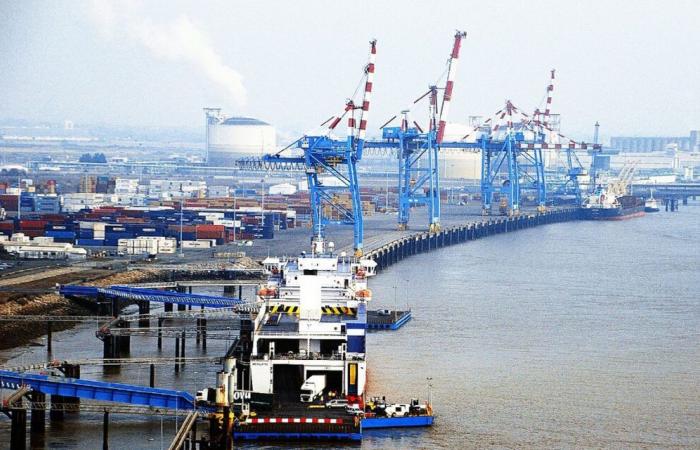
It is at the port of Nantes-Saint-Nazaire (Montoir-de-Bretagne) that we can also find some of Yamal's precious ice-breaking LNG carriers, maintained and repaired in Brest, this time loaded with liquefied natural gas (LNG) Russian. The Loire port would even be the second European importer.
One ship, one year of consumption for Nantes
Because they are essential for accessing and leaving Yamal and its Arctic ice, and because they are rare, slow and expensive, these icebreakers must get rid of their cargo as soon as possible. In particular by transshipping them on conventional LNG carriers, more suitable and above all faster, which will deliver the gas to their distant final recipients. On the route of these icebreakers, Saint-Nazaire is one of the three main European ports to have adequate infrastructure.
How many ships and what volumes are involved? Elengy, a subsidiary of Engie (of which the State is the majority shareholder) and operator of the Nazaire LNG terminal, did not wish to answer this question, citing the confidentiality of this data.
But according to an analysis by the German NGO Urgewald based on Kpler data, and entrusted to Télégramme, between January 2022, just before the attack on Ukraine, and the end of November 2024, 112 Yamal LNG tankers (including 50 in 2022) made deliveries or transshipments to Saint-Nazaire. A straw? Each of these icebreakers contains enough to ensure the annual domestic consumption of an urban area like that of Nantes!
Hard blow for the port in three months?
But, again, everything is perfectly legal. Europe has not banned imports of Russian gas. However, she has committed to getting rid of her addiction by 2027 at the latest… even if experts have calculated that she could have done without it since November 2023!
And the noose is tightening. From next March the European ban on “transshipment” of Russian LNG on ships in EU ports will come into force. A financial blow for the Nazaire terminal? To this question, Elengy simply indicates that transshipments only represent “10% of its activity”.
According to the analysis of the NGO Urgewald, on average, one in four Yamal LNG tankers (25%) has docked in Saint-Nazaire over the last three years to transship their LNG cargo onto another vessel. In 2023, it was almost one in two (43%).
Brest has for the moment escaped the consequences of European sanctions. “It is possible that firmer measures targeting Russian gas and the ships that transport it will soon be adopted,” confirms a senior French official. “If the rules change, the port of Brest will enforce these new rules,” says the Brittany Region. Europe is currently working on a 15th package of sanctions targeting Russia.





